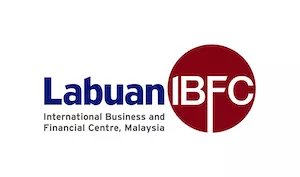MEETING THE NEED FOR SUBSTANCE
Substance is used in assessing cross-border tax situations that call into question the level of operational activity and decision-making process that is conducted in a jurisdiction.
A company needs to demonstrate that it has presence via its functional structure such as a physical office, staff administering the day-to-day operations of the company and the necessary operating tools or equipment, to evidence substance in that jurisdiction.
Domestic management staff should have basic decision-making authority to run the business with key decisions made by the Board of Directors while physically present in that said jurisdiction. Without such arrangements, it is possible for tax authorities to conclude that key decisions are made outside the jurisdiction where the company is operating and hence, lack economic substance.
In the case of Labuan International Business and Financial Centre (Labuan IBFC), it is important to note that the Labuan new tax regime requires Labuan entities to have a prescribed number of minimum employees and minimum annual operating expenditure in Labuan. The minimum requirements are based on the business activity that a Labuan entity is undertaking.
Simply put, tax residency cannot be automatically assumed even if a company is registered in a particular jurisdiction.
WHAT IS CORPORATE MIGRATION OR RE-DOMICILIATION?
Corporate migration or re-domiciliation occurs when a company undergoes a relocation process from one jurisdiction to another while retaining its legal identity. This can refer to the transfer of a company's corporate registration and tax residence.
A re-domiciling company does not need to go through a liquidation process nor need to transfer its assets and liabilities to a newly incorporated company. Neither is it necessary to liquidate the original company to avoid possible tax and other statutory implications in the country of origin.
There are various reasons for a company to re-domicile. Among them are:
- To be domiciled in a jurisdiction where it is possible and practical to have economic substance
- Enjoying the benefits of double tax treaties
- Gaining access to modern infrastructure and physical markets
- Availability of talent
- Access to capital markets and financing
- Political and social stability
- Lowering operating cost
- Aligning its place of registration with its shareholders' base
- Availability of business-friendly legislation and regulator(s)
- Availability of professional service providers such as trust and corporate service providers, auditors, etc.
WHY IS LABUAN IBFC THE IDEAL CHOICE FOR RE-DOMICILIATION?
- It is a well-regulated international business and financial centre conforming to international standards and practices
- It is legislated by a common law framework, offering a comprehensive suite of legislation enabling companies to create bespoke solutions for business growth and innovation
- It offers competitive tax rate(s) which are statutorily provided, namely 3% of net audited income for Labuan trading activity and zero tax on Labuan non-trading activity where conditions including substance requirements are met
- There are no indirect taxes in Labuan, including sales and services tax, import duties and excise duties*
- Access to more than 70 signed treaties in Malaysia which has one of the largest double tax treaty networks in Asia thereby making Labuan IBFC an ideal choice for cross-border transactions
- It is strategically located, with connections to all key markets in Asia
- It shares a similar time zone with most countries in Asia, making it an ideal location for Asian businesses
- Ease of doing business via a one-stop regulator, Labuan Financial Services Authority (Labuan FSA)
- Supported by a modern and comprehensive infrastructure network
- A Labuan entity may establish marketing office(s) anywhere in Malaysia
- Banks and insurance companies may establish additional operational offices (known as "co-located offices") anywhere in Malaysia outside Labuan as long as sufficient substance is maintained in Labuan. Meanwhile the co-located offices for holding companies are to be in Kuala Lumpur
- Businesses have access to a large pool of highly skilled workforce in Malaysia, proficient in English, Mandarin and Bahasa Malaysia. Work permit and dependent visa(s) to stay in Labuan and/or Malaysia are available
- Significantly lower operating and maintenance costs as compared to other jurisdictions, i.e. company registration, renewal, professional, legal, accountant and audit fees, office renta
- Labuan companies are recognised and accepted by Labuan International Financial Exchange (LFX), Singapore Exchange Limited (SGX), Hong Kong Exchange (HKEX) and National Stock Exchange of Australia (NSX) for public offering.
*Note: Services provided by a person from outside Labuan may be subject to service tax
PRE-APPROVAL
A foreign company may, prior to applying for re-domiciliation via the registration as a Labuan company, request that such registration be pre-approved in principle by Labuan FSA.
Once pre-approved, a certificate will be issued and the applicant then has 12 months from the certificate date to complete the re-domiciliation process.
WHAT ARE THE FEES FOR RE-DOMICILIATION INTO LABUAN IBFC?
The following fees payable to the Labuan FSA:
(Note: The fees quoted exclude the cost of engaging a Labuan trust company which will essentially act as a company secretary to the Labuan company)
| Reservation of company Name | USD15 |
| Pre-approval and certificate of confirmation (optional) | USD130 |
| Re-domiciliation processing fee | USD100 |
| Registration fee for a Labuan company with paid-up capital of: | |
|
USD300 |
|
USD600 |
|
USD1,500 |
The content of this article is intended to provide a general guide to the subject matter. Specialist advice should be sought about your specific circumstances.

